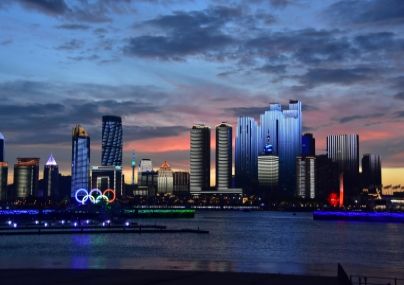A late hitch to Foxconn's takeover of Japan's struggling Sharp Corp brought simmering distrust between the two close to boiling point, people with direct knowledge of the matter said.
The two companies have eyed each other warily since Foxconn founder and billionaire Terry Gou pulled out of a planned capital tie-up and strategic partnership with Sharp in 2012.
Missteps in communication, when Sharp's board met and announced a decision to sell a two-thirds stake to the Taiwanese group, ratcheted up tensions, upsetting Gou and causing embarrassment at Sharp.
On the eve of that board meeting, Foxconn had asked Sharp to delay voting on a deal as it had just received "new material information" from Sharp that it hadn't seen before and needed to clarify.
"It seemed Sharp simply ignored Foxconn," said one individual familiar with Foxconn's take on the matter.
The information listed around 300 billion yen ($2.66 billion) in contingent liabilities at Sharp. The list was pulled together by working level officials at Sharp and forwarded, without top officials seeing it, to Foxconn as a goodwill gesture to make the buyer aware of worst-case scenario risks, sources said. They were not liabilities that required formal disclosure.
It didn't go down well on the Taiwan side.
"They felt violated," said a person briefed on the issue. Another person said Gou shouted at his team for not having discovered these liabilities in the first place.
The mood had calmed and the two companies' CEOs met in China to clear the air, sources said. Sharp and Foxconn have now agreed to extend a deadline for the takeover talks by a week or two, reflecting the importance of a deal, estimated to be worth nearly $6 billion, to both sides.
Sharp would have a much-needed financial lifeline, while Foxconn, formally known as Hon Hai Precision Industry Co, would get control of technology it needs to strengthen its hand with major client Apple Inc.
RUNNING DEEP
The hitch revives lingering ill-will from four years ago, when Foxconn agreed to take a stake in Sharp at 550 yen a share as part of a broader partnership. Then, Sharp warned of losses, and Foxconn walked away.
Sharp shares sank 74 percent over the next seven months.
Gou, however, personally bought a stake in Sharp's LCD TV panel plant in Osaka, and some at Sharp credit him with improving operations there.
A turning point in the latest deal came when Gou wowed Sharp's board, independent directors and creditors with his presentation of a takeover plan on Jan. 30, according to those briefed on the matter.
"Terry's a very convincing guy ... I've seen him use his magic," said a person familiar with how Gou operates.
Another person familiar with Gou said: "Sharp's blueprint, Terry is very clear about it and knows this stuff like the back of his hand."
But there were still nagging doubts in Japan.
"There are some doubts whether Hon Hai will really keep its promise," one official involved in the negotiations said on Feb. 4, when Sharp's 13-member board decided to prioritize talks with Foxconn over a competing offer from state-backed Innovation Network Corp of Japan. INCJ had been seen as strong favorite to take over Sharp and keep Japan's insular tech industry out of foreign hands.
Gou flew his team to Sharp's Osaka headquarters and emerged triumphantly waving a document, proclaiming Sharp had granted Foxconn preferred negotiation rights.
Sharp officials said the document actually referred to Foxconn's extension of a takeover offer for Sharp.
"This made (Sharp CEO Kozo) Takahashi and other executives rethink how trustworthy Gou would be," said one of the sources familiar with thinking in the Sharp camp.
That is now in the past.
"From these negotiations and from experience, Terry (Gou) has told his team time and again to be more respectful of and have more understanding of Japan's traditions and way of doing things," said one of the sources familiar with the thinking at Foxconn.
"Through the communication of the last 2-3 days, from the top level to the team level, I hope (the cooperation) will improve," the person said.


